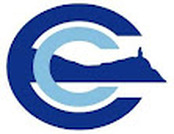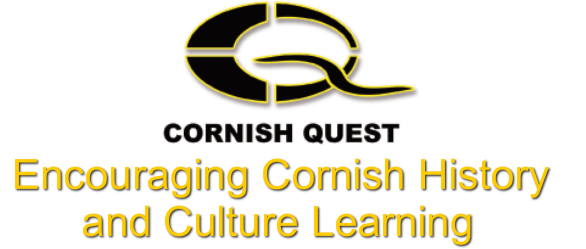Ofsted Case Study - Good practice resource - Making the most of local history: Cape Cornwall School

Ofsted have chosen the Cape Cornwall School History Department to show good practice in the teaching of history:
Click for Ofsted Website Page and full case study
Outline of the Case Study
History thrives at Cape Cornwall School. Students develop excellent understanding of their local heritage and the area in which they live through regular, high-quality opportunities to study local history. They understand the importance and relevance of history with the result that take-up at Key Stage 4 is well above average. This case study describes four key components which underpin the subject’s success at the school.
1. A distinctive curriculum that frequently focuses on the locality
The Key Stage 3 curriculum maximises opportunities for local history to enrich, consolidate and develop students’ historical knowledge, understanding and thinking.
In Year 7, students explore myths and legends in conjunction with a local storyteller and the English department, and evaluate the reliability of such accounts of the past. They investigate a local Norman castle as part of their work on ‘what have the Normans done for us?’ and study the evidence the Normans have left behind. As part of their work on ‘who are the British?’ students explore Cornish settlement patterns and place names.
The Year 8 curriculum focuses on Cornwall’s part in the English Civil War and also includes a major unit on Cornish mining and migration to mining areas in the United States, South Africa and Australia. Links have been established with a school in the ‘Little Cornwall’ district in Moonta, South Australia. The district celebrates a biennial Cornish festival, the ‘Kernewek Lowender’. Students at Cape Cornwall communicate by email with their counterparts in Moonta and exchange information about Cornish culture and customs.
In Year 9, students investigate how people’s experiences of the Second World War varied, drawing on oral testimony from local residents. Year 11 students study Cornish mining as a major component of their GCSE course, focusing on the Levant Mine which is just a few miles from the school. Many students have family connections with tin mining. Another local mine, Geevor, only ceased to be worked in 1991. As one student put it, ‘I was able to connect with history more because of this personal link’.
2. Providing a wealth of historical source material
Teachers have gone to considerable lengths over several years to find and exploit the available repositories of source material. Such is their dedication and enthusiasm that this has often involved time at half term or in school holidays poring over collections of documents in various archives and museums. They have gathered an array of visual and textual sources prior to compiling packs of resources for use in school.
3. Exploiting every opportunity for enrichment
The history department places great emphasis on providing students with enrichment opportunities, including visits to museums and sites of historical importance. These opportunities extend across the school and are focused on encouraging students to challenge and reshape their own thinking in the light of knowledge and understanding gleaned from this exposure to a different type of evidence.
A key feature of the work in relation to learning outside the classroom is an alertness to any opportunity that presents itself for students to work collaboratively to explore Cornish history. Successful partnership working is complemented by creative approaches to raising the profile of local history beyond lessons.
4. Creating cross-curricular approaches to learning
The history department is highly effective at exploiting links with other departments. This enriches and extends students’ understanding and emphasises the centrality of the subject in enabling them to develop a strong sense of identity and high self-esteem. It also means that history permeates much more of students’ learning than simply what takes place in subject lessons and homework.
Click for Ofsted Website Page and full case study
Outline of the Case Study
History thrives at Cape Cornwall School. Students develop excellent understanding of their local heritage and the area in which they live through regular, high-quality opportunities to study local history. They understand the importance and relevance of history with the result that take-up at Key Stage 4 is well above average. This case study describes four key components which underpin the subject’s success at the school.
1. A distinctive curriculum that frequently focuses on the locality
The Key Stage 3 curriculum maximises opportunities for local history to enrich, consolidate and develop students’ historical knowledge, understanding and thinking.
In Year 7, students explore myths and legends in conjunction with a local storyteller and the English department, and evaluate the reliability of such accounts of the past. They investigate a local Norman castle as part of their work on ‘what have the Normans done for us?’ and study the evidence the Normans have left behind. As part of their work on ‘who are the British?’ students explore Cornish settlement patterns and place names.
The Year 8 curriculum focuses on Cornwall’s part in the English Civil War and also includes a major unit on Cornish mining and migration to mining areas in the United States, South Africa and Australia. Links have been established with a school in the ‘Little Cornwall’ district in Moonta, South Australia. The district celebrates a biennial Cornish festival, the ‘Kernewek Lowender’. Students at Cape Cornwall communicate by email with their counterparts in Moonta and exchange information about Cornish culture and customs.
In Year 9, students investigate how people’s experiences of the Second World War varied, drawing on oral testimony from local residents. Year 11 students study Cornish mining as a major component of their GCSE course, focusing on the Levant Mine which is just a few miles from the school. Many students have family connections with tin mining. Another local mine, Geevor, only ceased to be worked in 1991. As one student put it, ‘I was able to connect with history more because of this personal link’.
2. Providing a wealth of historical source material
Teachers have gone to considerable lengths over several years to find and exploit the available repositories of source material. Such is their dedication and enthusiasm that this has often involved time at half term or in school holidays poring over collections of documents in various archives and museums. They have gathered an array of visual and textual sources prior to compiling packs of resources for use in school.
3. Exploiting every opportunity for enrichment
The history department places great emphasis on providing students with enrichment opportunities, including visits to museums and sites of historical importance. These opportunities extend across the school and are focused on encouraging students to challenge and reshape their own thinking in the light of knowledge and understanding gleaned from this exposure to a different type of evidence.
A key feature of the work in relation to learning outside the classroom is an alertness to any opportunity that presents itself for students to work collaboratively to explore Cornish history. Successful partnership working is complemented by creative approaches to raising the profile of local history beyond lessons.
4. Creating cross-curricular approaches to learning
The history department is highly effective at exploiting links with other departments. This enriches and extends students’ understanding and emphasises the centrality of the subject in enabling them to develop a strong sense of identity and high self-esteem. It also means that history permeates much more of students’ learning than simply what takes place in subject lessons and homework.
Cornish Quest is very pleased to support Cape Cornwall School and gave a donation of £100 to the History Department in July 2013 to assist the purchase of a set of books by Eric Quayle on Cornish folklore.

